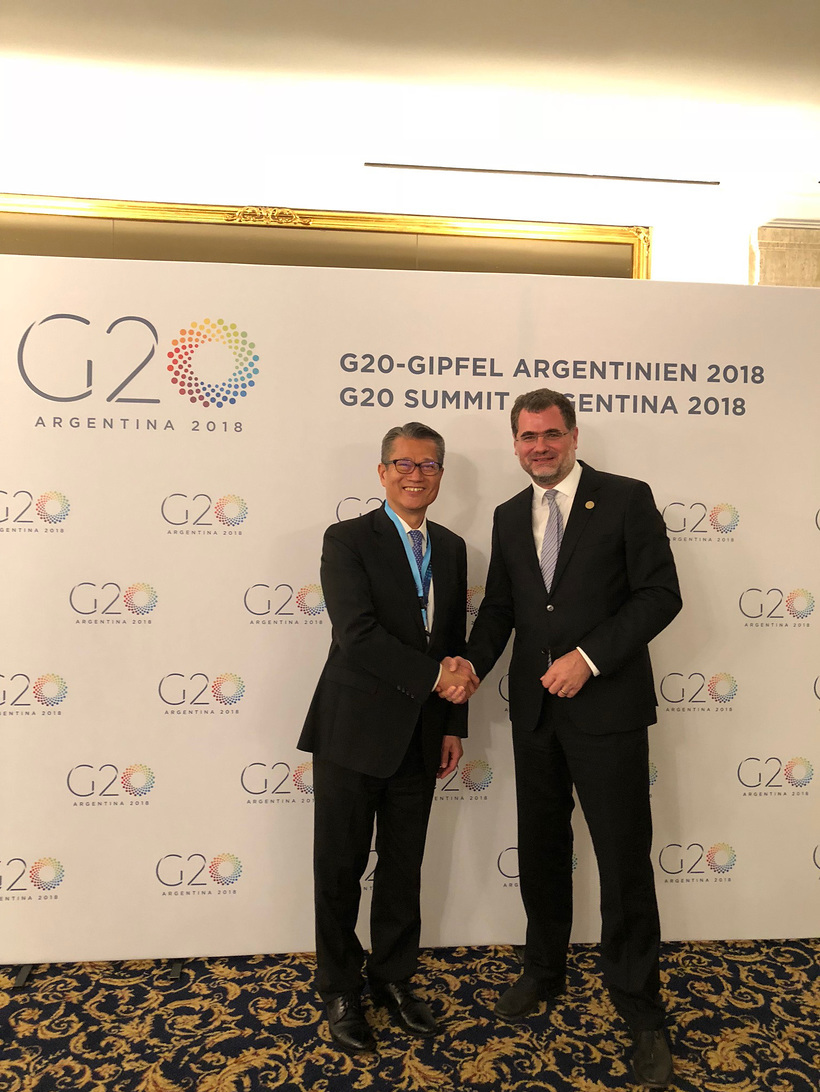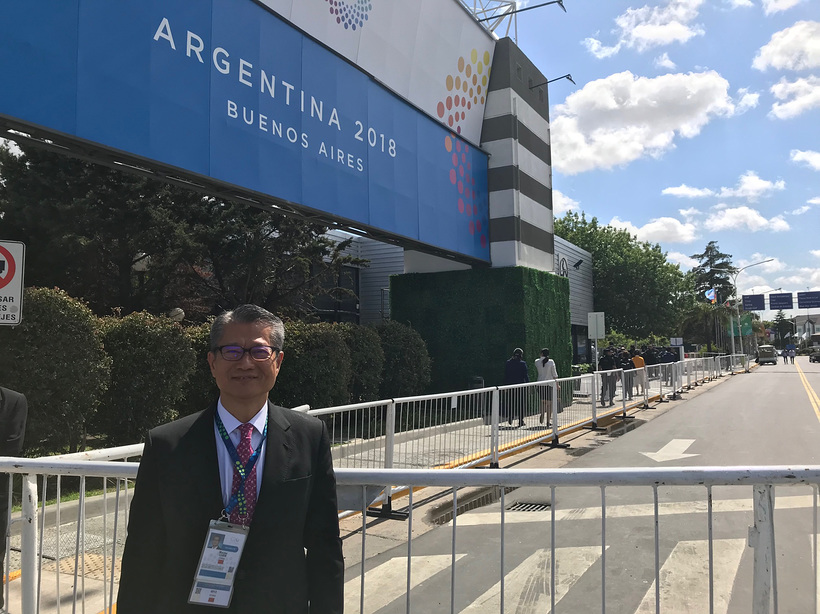Blog
G20 Leaders’ Summit
A gist of the blog:
Last week, I attended the Group of Twenty (G20) Leaders' Summit in Buenos Aires, Argentina, as part of the delegation of the People's Republic of China. Under the theme of "Building consensus for fair and sustainable development", the Summit focuses on key issues such as the future of work, infrastructure for development and a sustainable food future.
However, the greatest concern of the political and financial sectors worldwide would probably be the meeting between President Xi Jinping and US President Donald Trump on Sino-US trade conflict and the subsequent development, which will bring changes to the global economic outlook. Due to the uncertainty of economic prospect, International Monetary Fund and Organisation for Economic Co-operation and Development have already adjusted downward the growth trend of global economy earlier.
 |
The global economy is now facing a high risk from the arising tension of the trade conflict, interest rate hikes, capital flows and difficulties in emerging markets, etc. In case crises arise in global economy, it would be more difficult to handle the situation when comparing to the financial tsunami in 2008. At the time of 2008, different economies joined hands to solve the problem. The policy buffer was wider, allowing various means on currency, finance and exchange rates, etc. to tackle the issues. The current policy buffer is however limited. Quite some countries nowadays have fiscal deficit or even in heavy debt, making them difficult to initiate large scale borrowings. On exchange rates, if their volatility escalates, livelihood or even financial stability will be adversely affected. US’ unilateralism also discouraged international coorporation.
 |
The outcome of the meeting was yet to be known when I was writing this article. We should not expect all problems to be resolved in one single meeting, but at the same time, we should not be too pessimistic. To attract more foreign investment, China has all along been pursuing firmly economic reform and opening up to enhance business environment. It also fulfils its own responsibilities in various aspects and develops market advantages. For the US, due to market concern on the rising of interest rates and the worries brought by the trade conflict, US stock has registered a significant decrease recently. In case the conflict is further escalated, it will bring significant impact to US’ investment atmosphere and economy.
Hong Kong is a small and open economy. We uphold the principle of free trade and the success of Hong Kong is a result of win-win situation. We hope that the international community can reconfirm the advantages of free and open trade, protect the multilateral trading system, and come up with a consensus in resolving the dispute.
Afterword:
The media has already widely reported on the outcome of the meeting between President Xi Jinping and US President Donald Trump. The two leaders reached a consensus on not imposing additional tariffs under a friendly atmosphere. It should help ease market worries and tensions and provide more room between the two parties for negotiations.
However, the trade tension is merely a symptom of some deep-rooted, structural conflicts which cannot be resolved quickly. The two sides may not be able to reach a consensus in a short time and there may be ups and downs in the negotiation process, leading to fluctuations in the financial market. Having said that, the general principles reached by the two leaders, i.e. to develop based on a complementary and mutually-beneficial partnership; to manage divergence under mutual respect; and to pursue a cooperative and stable Sino-US relationship, have aroused expectation on the negotiation direction and outcome. At the same time, we should make preparations prudently to handle possible risks.
December 2, 2018